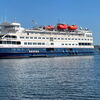Processing Your Payment
Please do not leave this page until complete. This can take a few moments.
- News
-
Editions
-
- Lists
-
Viewpoints
-
Our Events
-
Event Info
- Women's Leadership Forum 2025
- On the Road with Mainebiz in Bethel
- Health Care Forum 2025
- On The Road with Mainebiz in Greenville
- On The Road with Mainebiz in Waterville
- Small Business Forum 2025
- Outstanding Women in Business Reception 2025
- On The Road with Mainebiz in Bath
- 60 Ideas in 60 Minutes Portland 2025
- 40 Under 40 Awards Reception 2025
- On The Road with Mainebiz in Lewiston / Auburn
- 60 Ideas in 60 Minutes Bangor 2025
Award Honorees
- 2025 Business Leaders of the Year
- 2024 Women to Watch Honorees
- 2024 Business Leaders of the Year
- 2023 NextUp: 40 Under 40 Honorees
- 2023 Women to Watch Honorees
- 2023 Business Leaders of the Year
- 2022 NextUp: 40 Under 40 Honorees
- 2022 Women to Watch Honorees
- 2022 Business Leaders of the Year
-
-
Calendar
-
Biz Marketplace
- News
-
Editions
View Digital Editions
Biweekly Issues
- April 21, 2025 Edition
- April 7, 2025
- March 24, 2025
- March 10, 2025
- Feb. 24, 2025
- Feb. 10, 2025
- + More
Special Editions
- Lists
- Viewpoints
-
Our Events
Event Info
- View all Events
- Women's Leadership Forum 2025
- On the Road with Mainebiz in Bethel
- Health Care Forum 2025
- On The Road with Mainebiz in Greenville
- On The Road with Mainebiz in Waterville
- + More
Award Honorees
- 2025 Business Leaders of the Year
- 2024 Women to Watch Honorees
- 2024 Business Leaders of the Year
- 2023 NextUp: 40 Under 40 Honorees
- 2023 Women to Watch Honorees
- 2023 Business Leaders of the Year
- + More
- 2022 NextUp: 40 Under 40 Honorees
- 2022 Women to Watch Honorees
- 2022 Business Leaders of the Year
- Nomination Forms
- Calendar
- Biz Marketplace
Federal disaster declaration allocates $7M for Maine herring industry
 COURTESY / NOAA
The federal government declared the Atlantic herring fishery a disaster. The fish is a primary bait in the lobster fishery.
COURTESY / NOAA
The federal government declared the Atlantic herring fishery a disaster. The fish is a primary bait in the lobster fishery.
A decrease in Atlantic herring stock and quotas on herring fishing have prompted the federal government to declare the fishery a disaster and allocate $7.2 million to help Maine communities hurt by the decline.
The New England Fishery Management Council approved a quota for the herring fishery of around 15,000 tons for 2019, down from 55,000 tons in 2018. The regulatory agency also established a 12-mile buffer zone for large fishing boats called mid-water trawlers that prevents them from fishing close to shore.
The quota was driven by herring stock assessments. The 2018 assessment indicated that their annual spawning had been poor for several years.
In 2020, Gov. Janet Mills sent a letter to the National Oceanic and Atmospheric Administration requesting a disaster declaration for Maine's herring fishery, which produces an increasing amount of bait to support the lobster fishery.
Secretary of Commerce Gina Raimondo last week announced the herring fishery was included in an allocation of $144 million to support East and West coast communities affected by fishery disasters from 2018 to 2021.
The allocation includes a total of $11.3 million for the herring fishery, including $7.2 million for Maine, $3.2 million for Massachusetts, $604,000 for New Hampshire and $241,000 for Rhode Island.
In Maine, NOAA Fisheries will work in the coming months with the Department of Marine Resources to administer the funds.
“The drastic reduction in Atlantic herring quotas has caused significant losses in primary income and threatened job security for many in the herring industry,” said U.S. Sen. Susan Collins, R-Maine, who sent a letter in 2020 to support Mills’s letter.
The financial assistance “is crucial to the survival of Maine’s Atlantic herring fishery,” Collins said.
The 2018 stock assessment for Atlantic herring highlighted a total population reduction of more than 70% within a five-year span. Given the results, catch limits have been reduced by more than 80%, significantly decreasing the value of herring landed at Maine ports.
What's more, during the 2019 season, there were only nine weeks where Atlantic herring was landed, compared to 29 weeks in 2017.
The money can be used to assist commercial fishermen, recreational fishermen, charter businesses, shoreside infrastructure and subsistence users. Activities that can be considered for funding include fishery-related infrastructure projects, habitat restoration, state-run vessel and fishing permit buybacks, job retraining and more.
Some fishery-related businesses hurt by the fishery disasters may also be eligible for assistance from the U.S. Small Business Administration or other federal agencies.










0 Comments